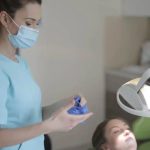Spitting Blood While Brushing Teeth: Causes, Treatment, and Prevention
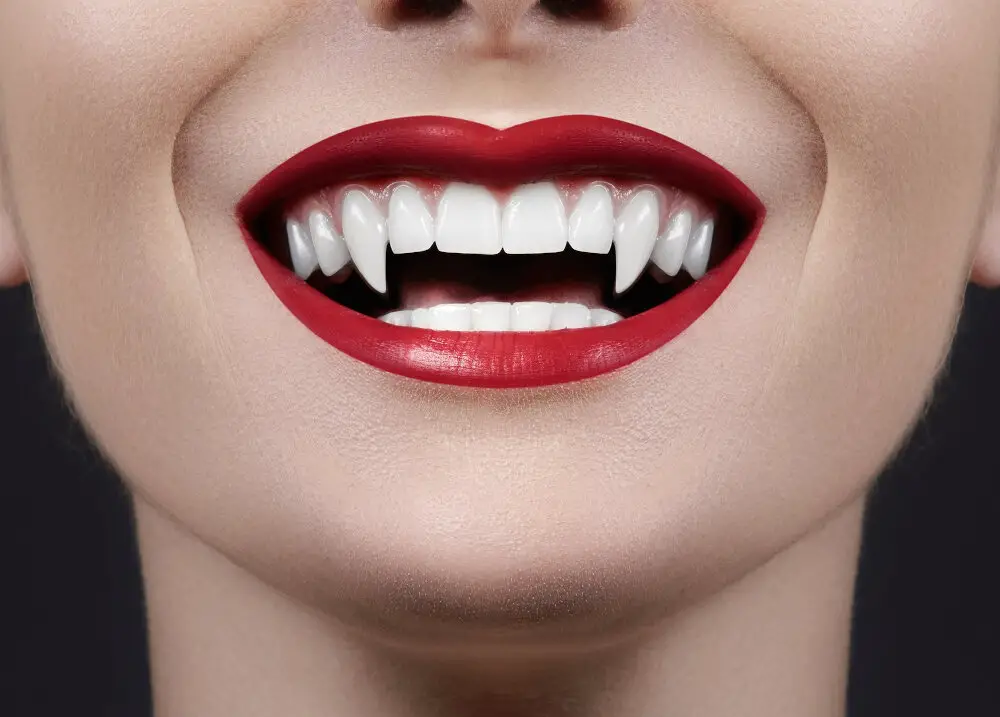
Spitting blood while brushing teeth can be a frightening and alarming experience for anyone. It is a common issue that affects people of all ages, and it can be caused by a wide range of factors. Bleeding gums are usually the most common cause, but it can also be a symptom of an underlying condition. If left untreated, it can lead to serious dental problems and even affect your overall health. Therefore, it is essential to understand the causes, treatment, and prevention of spitting blood while brushing teeth. There are several reasons why you may be spitting blood while brushing teeth. One of the most common causes is gum disease, which is caused by poor oral hygiene. The buildup of plaque and tartar can irritate your gums, leading to bleeding and inflammation. Another common cause is brushing too hard or using a toothbrush with bristles that are too hard, which can cause damage to your gums and lead to bleeding. Other possible causes include vitamin deficiencies, hormonal changes, and certain medical conditions such as leukemia or hemophilia. Understanding the root cause of your bleeding gums is crucial to preventing further damage and seeking appropriate treatment.
Spitting blood while brushing teeth can be a worrying and uncomfortable experience. It is often a sign of gum disease or other oral health issues. Gum disease is a common condition that affects many people worldwide, and if left untreated, it can lead to tooth loss and other complications. It is important to identify the underlying cause of spitting blood and seek treatment as soon as possible. Treatment options can include improved oral hygiene practices, dental procedures, and medication. Preventative measures such as regular dental check-ups, brushing twice daily, and flossing can help to reduce the risk of developing gum disease and other oral health problems.
Causes of Spitting Blood While Brushing Teeth
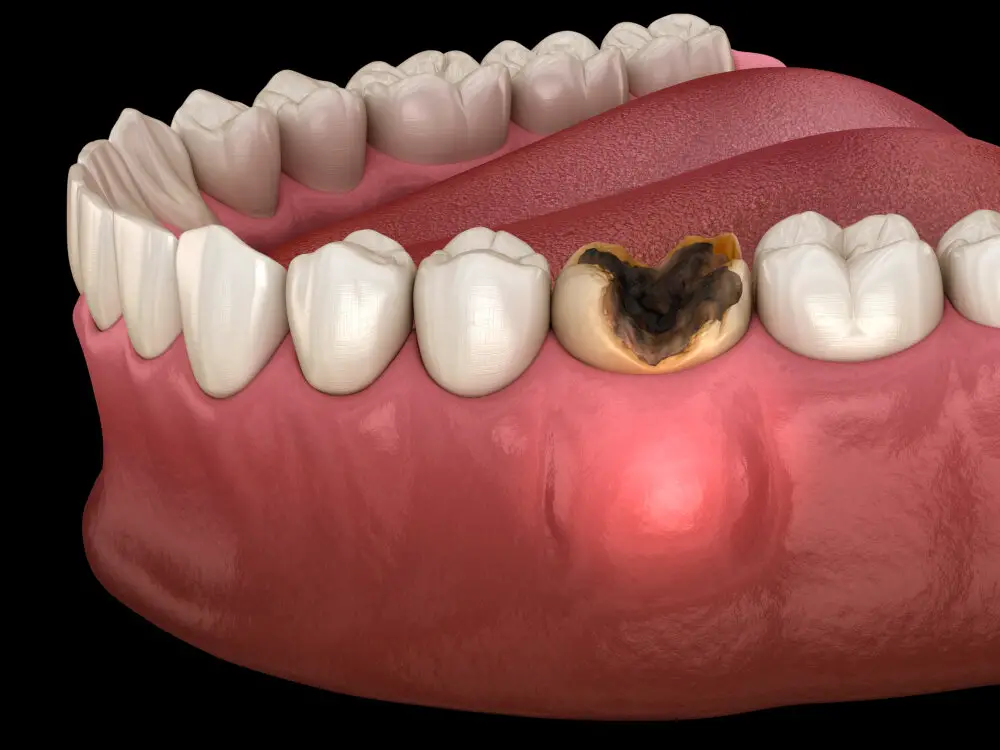
Spitting blood while brushing teeth can be a concerning and frightening experience for anyone. The most common cause of spitting blood while brushing teeth is gingivitis or gum disease. Gingivitis is a bacterial infection of the gums that causes swelling, redness, and bleeding of the gums. Poor oral hygiene, smoking, diabetes, and certain medications can increase the risk of developing gingivitis. If left untreated, gingivitis can progress to periodontitis, which can cause tooth loss and bone damage. Another possible cause of spitting blood while brushing teeth is trauma to the mouth or gums. This can occur due to accidental injury, rough brushing, or using a toothbrush with hard bristles. In some cases, spitting blood while brushing teeth can be a sign of a more serious underlying condition, such as cancer or a blood disorder. It is important to seek medical attention if spitting blood while brushing teeth becomes a persistent or recurring problem. Treatment for spitting blood while brushing teeth depends on the underlying cause and may include improved oral hygiene, antibiotics, or surgery. Prevention measures include regular dental check-ups, brushing and flossing twice a day, and avoiding smoking.
Gum disease, also known as gingivitis or periodontitis, is a common dental problem that affects millions of people worldwide. It is caused by the buildup of plaque on the teeth and gums, which can lead to inflammation, bleeding, and infections. Gingivitis is the early stage of gum disease and can be reversed with proper dental care, while periodontitis is a more advanced stage and can cause irreversible damage to the gums and bones supporting the teeth. Symptoms of gum disease include redness, swelling, and bleeding of the gums, bad breath, and loose teeth. Treatment options for gum disease include professional dental cleanings, antibiotics, and surgery in severe cases. Proper oral hygiene and regular dental check-ups can help prevent gum disease and maintain good oral health.
Brushing your teeth is essential for maintaining good oral hygiene. However, brushing too hard or using a hard-bristled toothbrush can cause damage to your teeth and gums. When you brush too hard, you can wear away the enamel on your teeth, causing sensitivity and even tooth decay. Hard-bristled toothbrushes can also damage the gums, causing them to recede and exposing the roots of your teeth. This can lead to pain and sensitivity when eating or drinking hot or cold foods. To avoid these problems, it’s important to use a soft-bristled toothbrush and to brush gently in a circular motion. Remember, brushing harder doesn’t mean cleaner teeth, it just means you’re damaging your teeth and gums.
Mouth sores or infections are a common occurrence that can be caused by various reasons such as viral or bacterial infections, mouth injuries, immunodeficiency, and other underlying medical conditions. These sores can appear anywhere in the mouth, including the gums, tongue, cheeks, and lips. Symptoms may include pain, swelling, redness, and the formation of fluid-filled blisters that can burst and cause bleeding. If left untreated, mouth sores can lead to more serious complications and affect a person’s ability to eat, drink, and speak. Treatment for mouth sores may include over-the-counter pain relievers, topical medications, and oral antibiotics. Prevention measures include maintaining good oral hygiene, avoiding acidic and spicy foods, and quitting smoking.
Blood thinning medications, also known as anticoagulants, are prescribed to individuals who are at risk of blood clots forming in their veins or arteries. These medications work by interfering with the blood clotting process, making it less likely for a clot to form. Blood thinners can be taken orally or through injections, and they come in different forms such as warfarin, heparin, and newer agents like apixaban and rivaroxaban. While they can be effective in preventing life-threatening conditions like stroke and heart attack, they also carry the risk of bleeding. Therefore, it is important for individuals taking blood thinners to monitor their blood levels regularly and follow their doctor’s instructions carefully to avoid any potential complications.
Vitamin deficiencies can have serious consequences on our health and well-being. A lack of vitamin C, for example, can lead to scurvy, a disease that causes weakness, fatigue, and bleeding gums. Vitamin D deficiency can result in rickets, a condition that causes softening and weakening of bones. Vitamin B12 deficiency can cause anemia, nerve damage, and even dementia. To prevent vitamin deficiencies, it is important to consume a balanced diet that includes a variety of foods rich in vitamins, such as fruits, vegetables, whole grains, lean proteins, and dairy products. In some cases, supplements may be necessary to ensure adequate intake of certain vitamins. If you suspect you have a vitamin deficiency, it is important to speak with a healthcare professional to determine the cause and appropriate treatment.
Treatment for Spitting Blood While Brushing Teeth
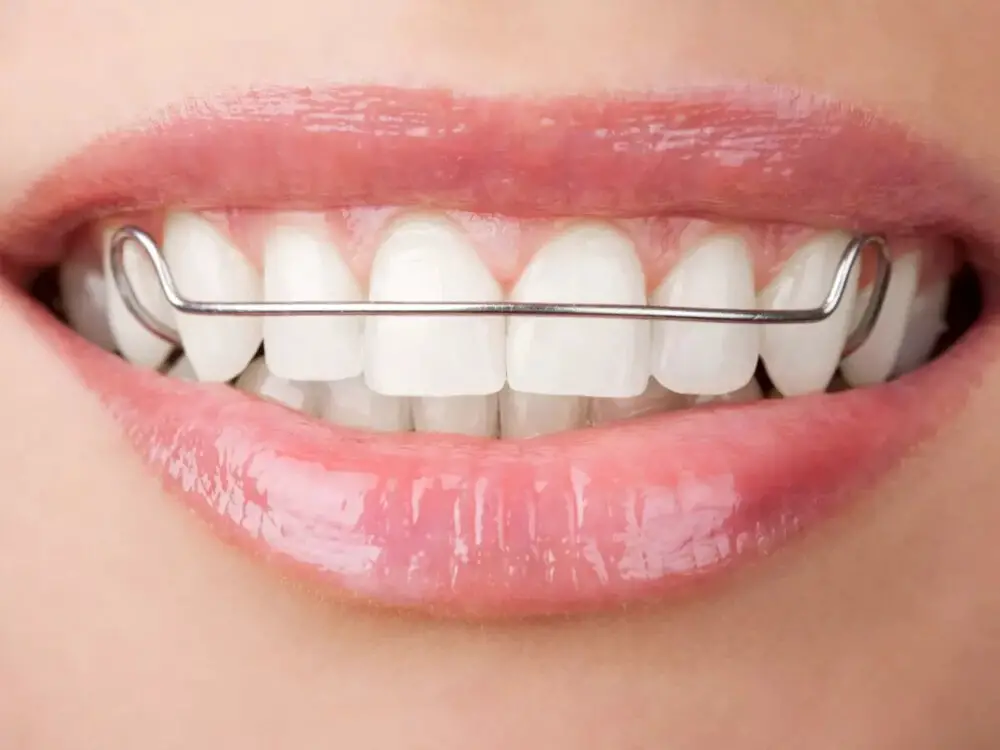
Spitting blood while brushing teeth can be a scary and concerning experience. However, it is important to remember that there are various treatment options available to address the underlying cause of the bleeding. The first step in treating this condition is to identify the root cause. Common causes include gum disease, gingivitis, or a dental abscess. If the bleeding is due to gum disease or gingivitis, a dental professional may recommend a deep cleaning procedure to remove plaque and bacteria from the teeth and gums. In more severe cases, surgery may be required to remove infected tissue or bone. In addition to professional treatment, there are steps that can be taken at home to prevent and treat spitting blood while brushing teeth. These include maintaining good oral hygiene habits, such as brushing teeth twice a day and flossing regularly. Using an antiseptic mouthwash can also help to kill bacteria in the mouth and prevent infection. Eating a balanced diet rich in vitamins and minerals can also support healthy teeth and gums. If you experience spitting blood while brushing teeth, it is important to seek professional dental care to determine the underlying cause and receive appropriate treatment.
Consulting with a dentist or doctor is crucial if you experience spitting blood while brushing your teeth. This symptom may indicate various underlying medical conditions that require immediate attention. During the consultation, the dentist or doctor will perform a thorough examination of your mouth and teeth to determine the root cause of the bleeding. They may also recommend further tests or refer you to a specialist if necessary. Early diagnosis and treatment are vital in preventing the progression of any underlying condition that may be causing the bleeding. Therefore, it is essential to seek professional help as soon as possible to ensure optimal oral and overall health.
Scaling and root planing, also known as deep cleaning, is a non-surgical procedure performed by a dental hygienist or periodontist to treat gum disease. This procedure involves removing plaque and tartar buildup from the teeth and below the gumline, as well as smoothing the tooth roots to promote gum reattachment and prevent further bacterial growth. Scaling and root planing can be uncomfortable, but local anesthesia can be used to minimize discomfort. The procedure may be completed in one or multiple visits, depending on the severity of the gum disease. After the procedure, patients may experience some sensitivity and bleeding, but proper oral hygiene and follow-up appointments can help ensure successful healing and prevention of further gum disease.
In cases where gum disease has progressed to an infection, prescription mouthwashes or antibiotics may be necessary. A prescription mouthwash contains a higher concentration of active ingredients than over-the-counter options, making it more effective at killing bacteria and reducing inflammation. Antibiotics, on the other hand, are often prescribed for more severe infections or when the infection has spread. It’s important to follow the instructions for both types of medication carefully and finish the full course of treatment to ensure the infection is completely eradicated. If you’re experiencing bleeding while brushing your teeth, it’s best to see a dentist as soon as possible to determine if an infection is present and what treatment options may be necessary.
If you are experiencing spitting blood while brushing your teeth, it’s essential to consult with your doctor or dentist immediately. They may prescribe medication to treat underlying conditions such as gum disease or infections. However, it’s important to note that medication can have side effects, some of which can be severe. In some cases, adjusting the medication dosage may be possible to reduce side effects while still managing the condition effectively. It’s crucial to follow your healthcare provider’s instructions carefully and inform them of any changes in your symptoms.
If you’re experiencing spitting blood while brushing teeth, it could be a sign of a vitamin deficiency. In some cases, low levels of vitamin K or C can cause bleeding gums. Supplementing with vitamins can help alleviate this issue, but it’s important to consult with a healthcare professional before starting any vitamin regimen. Vitamin K is essential for blood clotting, while vitamin C plays a role in collagen production, which is important for maintaining healthy gums. Eating a balanced diet that includes plenty of fruits and vegetables can also help ensure you’re getting enough of these important vitamins.
Prevention of Spitting Blood While Brushing Teeth

Spitting blood while brushing teeth can be a concerning symptom that should not be ignored. It can be caused by various factors, such as gum disease, poor oral hygiene, or even some chronic medical conditions. However, there are several preventive measures one can take to avoid this unpleasant experience. First and foremost, it is crucial to maintain good oral hygiene by brushing teeth twice a day, flossing regularly, and using mouthwash. This helps to remove plaque and bacteria that can cause gum disease and bleeding. Moreover, it is essential to use a soft-bristled toothbrush and gentle brushing technique to avoid damaging the gums. Hard-bristled brushes or aggressive brushing can irritate the gums and cause bleeding. Another preventive measure is to visit the dentist regularly for routine check-ups and cleanings. A dentist can identify any underlying dental issues that can cause bleeding and provide appropriate treatment. Additionally, quitting smoking or avoiding tobacco products can significantly reduce the risk of gum disease and bleeding. Tobacco products contain harmful chemicals that can damage the gums and increase the risk of oral cancer. Therefore, it is best to avoid them altogether. By following these preventive measures, one can maintain good oral health and prevent the unpleasant experience of spitting blood while brushing teeth.
Regular dental visits for cleanings and checkups are crucial for maintaining good oral health and preventing gum disease. During these visits, a dental professional will thoroughly clean your teeth and check for any signs of decay or gum disease. If left untreated, gum disease can cause bleeding gums, bad breath, and even tooth loss. Additionally, regular dental checkups can detect other dental issues, such as cavities or a misaligned bite, before they become more serious problems. By scheduling regular dental visits, you can ensure that your teeth and gums stay healthy, and avoid the discomfort and potential complications that come with gum disease.
Proper brushing technique is essential to maintain good oral hygiene and prevent bleeding gums. Using a soft-bristled toothbrush, hold it at a 45-degree angle to your teeth and gently brush in circular motions for two minutes, making sure to reach all surfaces of your teeth and gums. Avoid using excessive pressure or a back-and-forth motion, as this can damage your gums and cause bleeding. Be sure to replace your toothbrush every three to four months or as soon as the bristles show signs of wear. Remember to also floss daily and visit your dentist regularly for professional cleanings and checkups to keep your teeth and gums healthy.
Flossing daily is an essential part of maintaining good oral hygiene. Not only does it remove food particles and plaque from between your teeth, but it also prevents gum disease and bad breath. Many people neglect flossing because they find it time-consuming or painful, but it’s important to remember that it only takes a few minutes each day and the benefits are well worth it. By flossing regularly, you can keep your gums healthy and strong, which can help prevent bleeding when brushing your teeth. So, make sure to add flossing to your daily routine and keep your teeth and gums healthy and strong.
Maintaining a healthy diet and lifestyle is crucial in preventing many health problems, including gum disease and bleeding gums. Eating a balanced diet rich in fruits, vegetables, whole grains, lean protein, and healthy fats can help reduce inflammation and support overall oral health. In addition, regular exercise can improve circulation and boost immune function, which can also help prevent gum disease. Other healthy habits that can promote good oral health include avoiding tobacco products, limiting alcohol consumption, and practicing good oral hygiene, such as brushing twice a day and flossing daily. By adopting these healthy habits, individuals can reduce their risk of developing bleeding gums and other oral health problems.
Managing underlying health conditions is crucial in preventing the occurrence of spitting blood while brushing teeth. If you have gum disease or any other dental problem, it’s essential to maintain good oral hygiene by brushing and flossing regularly. In addition, underlying medical conditions like high blood pressure and diabetes must be well-managed to avoid complications that could lead to bleeding gums. A healthy diet and lifestyle can also play a significant role in preventing spitting blood while brushing teeth. By eating a balanced diet, exercising regularly, and avoiding tobacco and excessive alcohol consumption, you can reduce your risk of developing systemic health issues that can lead to bleeding gums. Overall, proper management of underlying health conditions is essential for good oral and systemic health.
When to Seek Medical Attention
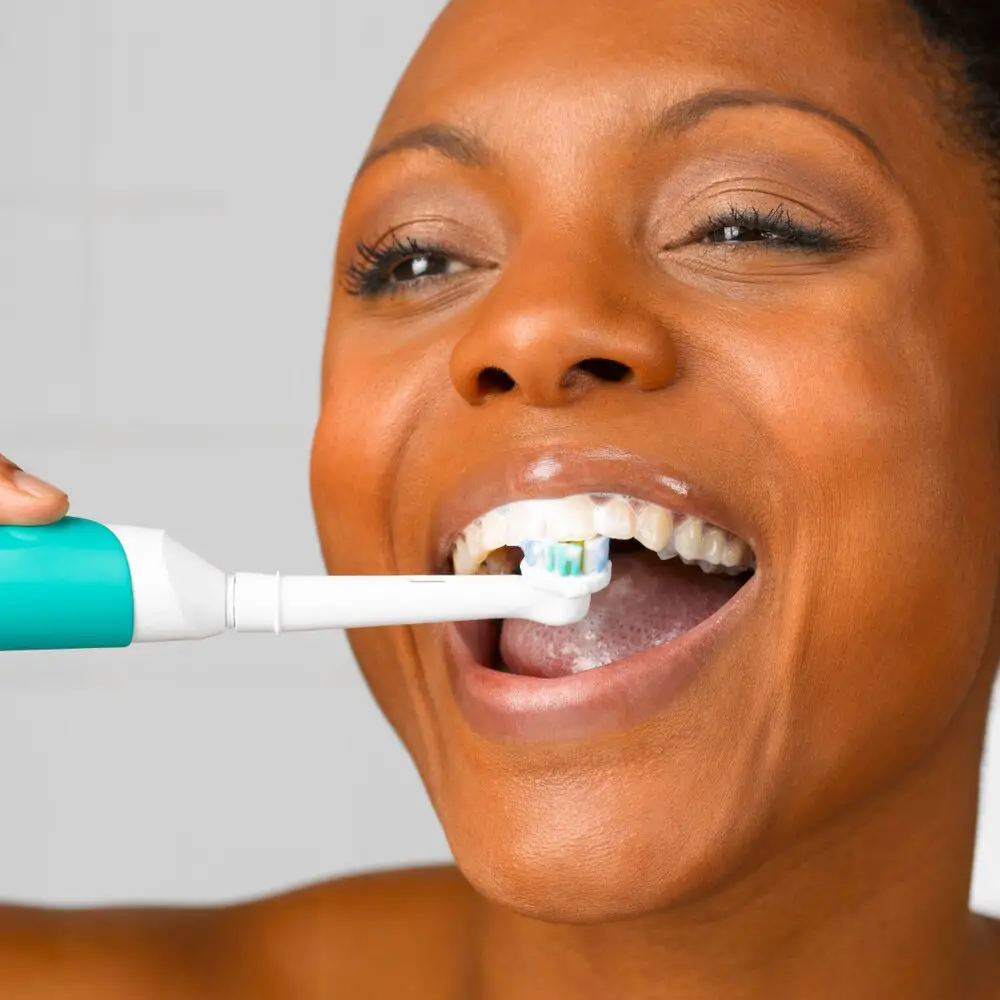
Spitting blood while brushing teeth can be a sign of a serious medical condition. If you notice that you are consistently spitting blood while brushing your teeth, it is important to seek medical attention immediately. Some of the conditions that can cause you to spit blood while brushing teeth include gingivitis, periodontitis, and other gum diseases. These conditions can lead to tooth loss and damage to the jawbone if left untreated. Additionally, spitting blood while brushing teeth can also be a sign of oral cancer. This is why it is important to seek medical attention as soon as possible if you notice any unusual symptoms. In addition to seeking medical attention for spitting blood while brushing teeth, it is also important to practice good oral hygiene habits. This includes brushing your teeth at least twice a day, flossing regularly, and using mouthwash. You should also avoid smoking and limit your consumption of alcohol and sugary foods and drinks. By following these tips, you can help prevent gum disease and other oral health problems, and reduce your risk of spitting blood while brushing teeth. Remember, regular dental checkups and cleanings are also important for maintaining good oral health and catching any potential issues before they become more serious.
Persistent bleeding, also known as chronic bleeding, can be a concerning symptom that requires medical attention. It may occur due to a variety of underlying conditions such as gum disease, vitamin deficiencies, or even certain types of cancer. In some cases, spitting blood while brushing teeth can be a sign of a serious condition such as leukemia or hemophilia. It is important to seek immediate medical attention if the bleeding persists or is accompanied by other symptoms such as chest pain or difficulty breathing. Treatment for persistent bleeding depends on the underlying cause and may involve medications, lifestyle changes, or surgery. Preventive measures such as maintaining good oral hygiene and avoiding certain medications or activities can also help reduce the risk of persistent bleeding.
Severe pain or swelling accompanying spitting blood while brushing teeth could be indicative of an underlying dental or gum disease. Gum diseases such as gingivitis and periodontitis can cause inflammation and bleeding of the gums. If left untreated, they can lead to tooth loss, bone damage, and even heart disease. In some cases, a tooth abscess or infection may also cause pain and swelling. It is important to seek dental treatment immediately if you experience severe pain or swelling, as prompt treatment can prevent further damage and restore your oral health.
Difficulty eating or speaking can be a concerning symptom that indicates an underlying health issue. It could be due to several factors such as dental problems, mouth or throat infections, and even cancer. The discomfort can range from mild to severe, and it may make it difficult to enjoy meals or engage in conversations. If you experience this symptom, it is crucial to seek medical attention as soon as possible. A thorough examination can help diagnose the cause of the difficulty, and prompt treatment can alleviate the discomfort and prevent further complications.
Unexplained bruising or bleeding in other areas of the body may be a sign of underlying health issues and should be taken seriously. This could be a symptom of a blood disorder such as thrombocytopenia or leukemia, or a liver disease like cirrhosis. It could also be a side effect of certain medications like blood thinners or aspirin. In some cases, it may be due to physical abuse or trauma. If you notice unexplained bruising or bleeding, it is important to speak with your healthcare provider to determine the cause and appropriate treatment. Ignoring these symptoms could lead to complications and further health issues.
Spitting blood while brushing teeth can be caused by various factors including gum disease, cavities, or trauma to the mouth. Treatment options depend on the underlying cause, and may include antibiotics, dental procedures such as root canals or extractions, or lifestyle changes such as quitting smoking or improving oral hygiene. Prevention strategies include maintaining good oral hygiene by brushing and flossing regularly, using mouthwash, and avoiding tobacco products. It is also important to visit the dentist regularly for check-ups and cleanings to catch potential issues early and prevent them from developing into more serious problems.
Oral health is an essential aspect of overall well-being that should not be taken for granted. Many people neglect their oral hygiene, which can lead to serious health problems. Therefore, it is crucial to emphasize the importance of maintaining good oral health by brushing and flossing regularly and seeking medical attention when necessary. The presence of blood while brushing teeth can be an alarming sign that something is wrong with your oral health. It may indicate gum disease, which left untreated, can lead to tooth loss and other health complications. Therefore, it is essential to seek medical attention as soon as possible to prevent further damage to your oral health. Regular dental check-ups can go a long way in maintaining good oral hygiene and preventing the onset of serious oral health problems.
Conclusion
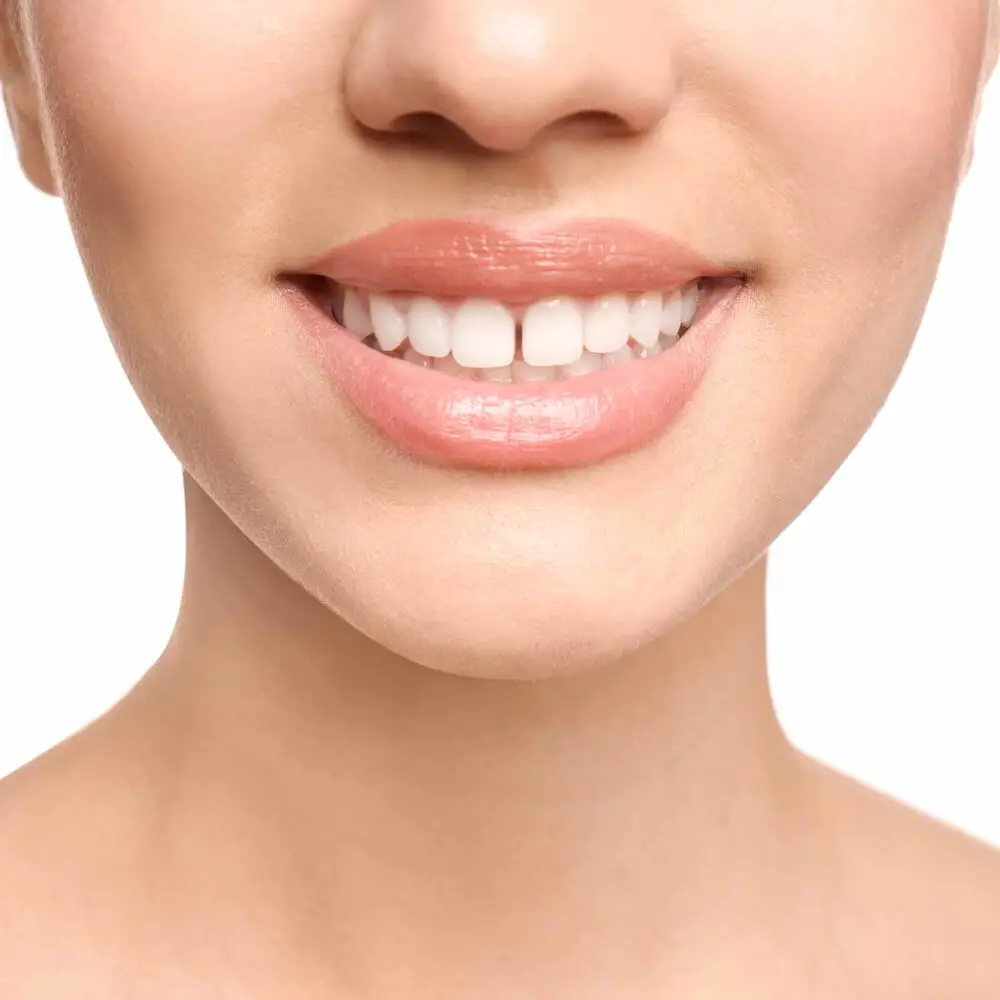
In conclusion, spitting blood while brushing teeth can be a frightening and alarming experience. It can be caused by a variety of factors, including gum disease, gum infections, or even aggressive brushing. Seeking prompt treatment from a dental professional is essential to identify the underlying cause and prevent further complications. Treatment options may include antibiotics, scaling and root planing, or even surgery in severe cases. Prevention is key in maintaining good oral hygiene and preventing gum disease. This includes regular brushing and flossing, avoiding tobacco products and sugary foods, and regular dental check-ups. Remember, your oral health is crucial to your overall well-being, so don’t hesitate to seek help if you experience any unusual symptoms.




